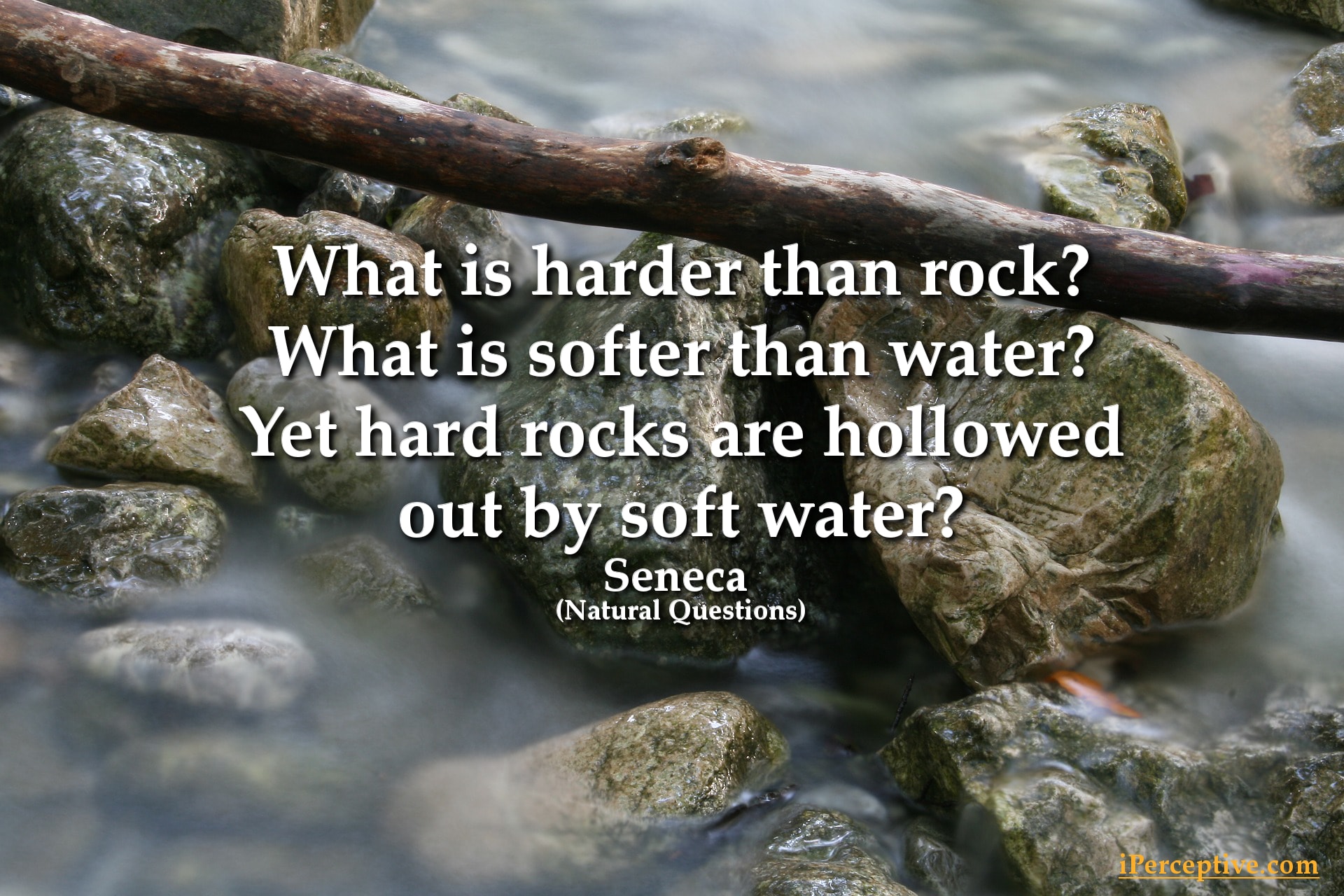Stoic Quotes on Nature and the Universe
All art is but imitation of nature.
There is one great law throughout nature.
The universe is transformation: life is opinion.
The universe itself is God and the universal outpouring of its soul.
This thou must always bear in mind, what is the nature of the whole, and what is my nature.
How quickly things disappear: in the universe the bodies themselves, but in time the memory of them.

What is harder than rock? What is softer than water? Yet hard rocks are hollowed out by soft water?
Living virtuously is equal to living in accordance with one's experience of the actual course of nature.
Every part of me then will be reduced by change into some part of the universe, and that again will change into another part of the universe, and so on forever.
No thing great is created suddenly, any more than a bunch of grapes or a fig. If you tell me that you desire a fig, I answer you that there must be time. Let it first blossom, then bear fruit, then ripen.
Whether the universe is a concourse of atoms, or nature is a system, let this first be established: that I am a part of the whole that is governed by nature; next, that I stand in some intimate connection with other kindred parts.
To rest in these principles only: the one, that nothing will happen to me which is not conformable to the nature of the universe; and the other, that it is in my power never to act contrary to my god and daimon: for there is no man who will compel me to this.
Consider that before long you will be nobody and nowhere, nor will any of the things exist that you now see, nor any of those who are now living. For all things are formed by nature to change and be turned and to perish in order that other things in continuous succession may exist.
How small a part of the boundless and unfathomable time is assigned to every man! For it is very soon swallowed up in the eternal. And how small a part of the whole substance! And how small a part of the universal soul! And on what a small clod of the whole earth you creep!
Hence nature, as not being ignorant of the purpose for which she generated us, produced each of us accompanied, after a certain manner, by an auxiliary. No one, therefore, is alone, nor does he derive his origin from an oak or a rock, but from parents, and in conjunction with brothers, and kindred, and other familiars.
If melodiously piping flutes sprang from the olive, would you doubt that a knowledge of flute-playing resided in the olive? And what if plane trees bore harps which gave forth rhythmical sounds? Clearly you would think in the same way that the art of music was possessed by plane trees. Why, then, seeing that the universe gives birth to beings that are animate and wise, should it not be considered animate and wise itself?
Is any man afraid of change? What can take place without change? What then is more pleasing or more suitable to the universal nature? And can you take a hot bath unless the wood for the fire undergoes a change? And can you be nourished unless the food undergoes a change? And can anything else that is useful be accomplished without change? Do you not see then that for yourself also to change is just the same, and equally necessary for the universal nature?
Every animal, therefore, lives conformably to its natural constitution, and, by Jupiter, in a similar manner every plant lives agreeably to the life which is imparted to it. Only there is this difference between the two, that the latter do not employ any reasoning, or a certain enumeration, in the selection of things which they explore; as they make use of nature alone, because they do not participate of soul; but animals are led to investigate what is proper for them by imaginations and exciting desires. To us, however, Nature gave reason, in order that it might survey everything else, and, together with all things, or rather prior to all things, might direct its attention to Nature herself, so as in an orderly manner to tend to her as to a very splendid and stable mark, and choosing every thing which is consonant to her, might cause us to live in a becoming manner.
Quotes by Ancient Stoics
- Zeno of Citium »
- Aristo of Chios »
- Cleanthes »
- Chrysippus »
- Seneca the Younger »
- Gaius Musonius Rufus »
- Epictetus »
- Hierocles »
- Marcus Aurelius »
